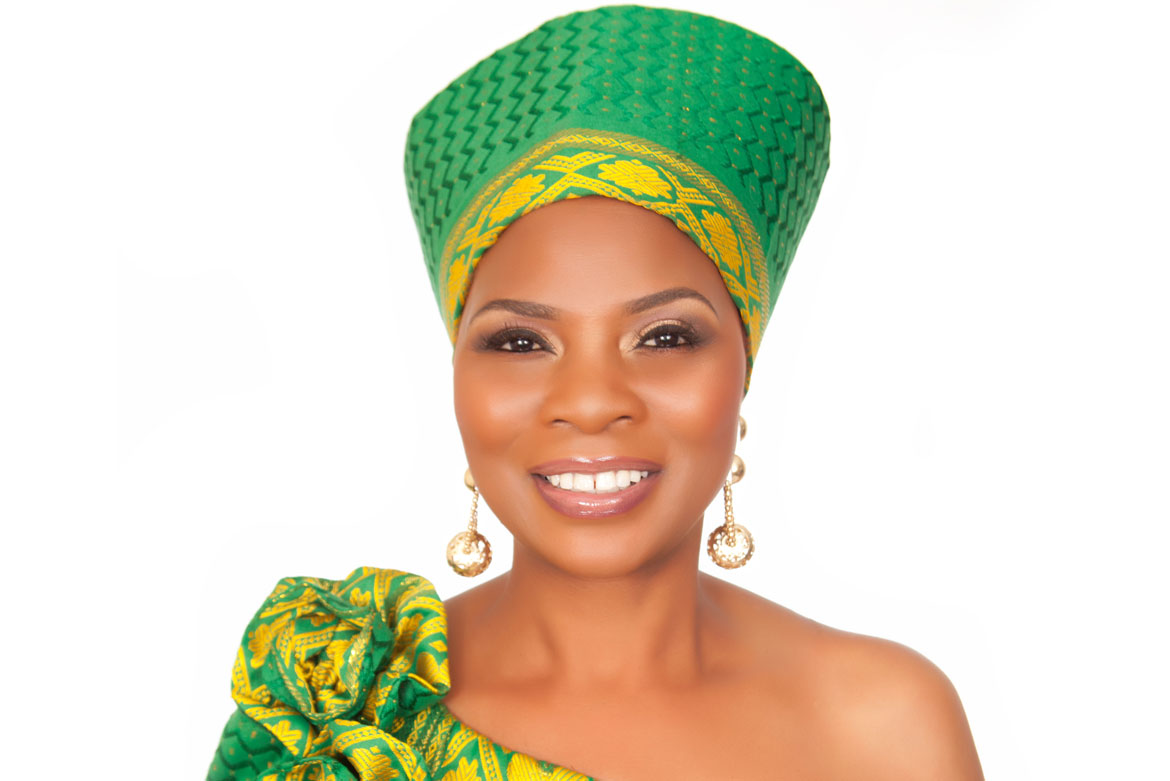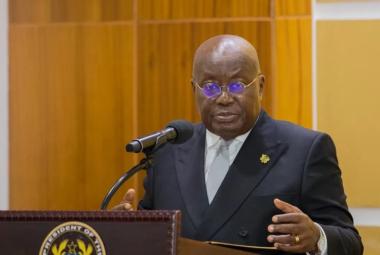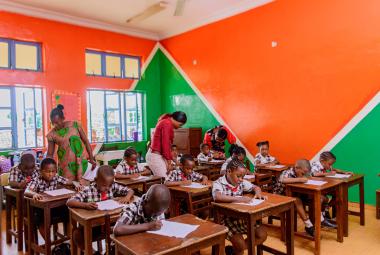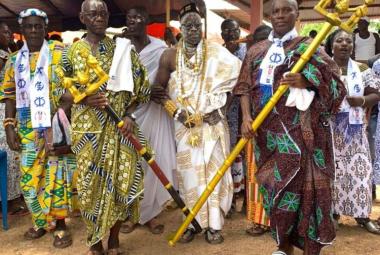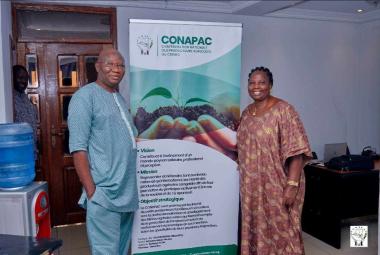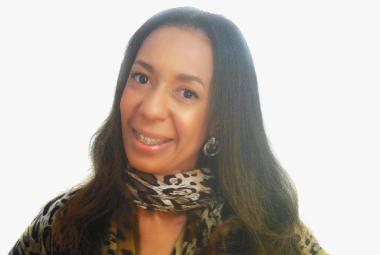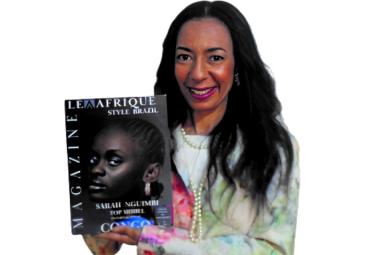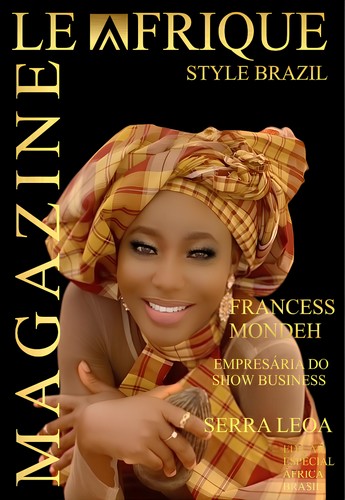“Justina Mutale is a towering icon of exceptional repose, a woman of inestimable value, a caring and influential heroine, one that exemplifies high standards, ethics, care and unalloyed support for women and values”. - African ViewPoint Journal
Her Excellency Dr Justina Mutale is a Stateswoman Extraordinaire. While one dictionary definition of Stateswoman is “… a woman who is active in politics or government; or who holds high public office”, another definition is of “… one who is intelligently active in work that benefits the citizens of a state or nation. Justina Mutale falls in the latter category of Stateswomanship and not only does she benefit one state or nation, but her work extends to the entire globe. The fact she does not run any country, nor is she actively involved in politics does not make Justina Mutale any less the Stateswoman that she is. Justina Mutale defies the conventional meaning of leadership and Stateswomanship with her global leadership qualities and Statewomanship, which challenge all stereotypes and norms. Not being a leader or ruler of a country or nation, Justina Mutale’s Statewomanship can be likened to Tom Goodwin’s observation of some of the best brands in business in the 21st century: “… the world’s largest taxi firm, Uber, owns no cars. The world’s most popular media company, Facebook, creates no content. The world’s most valuable retailer, Alibaba, carries no stock. And the world’s largest accommodation provider, Airbnb, owns no property”.
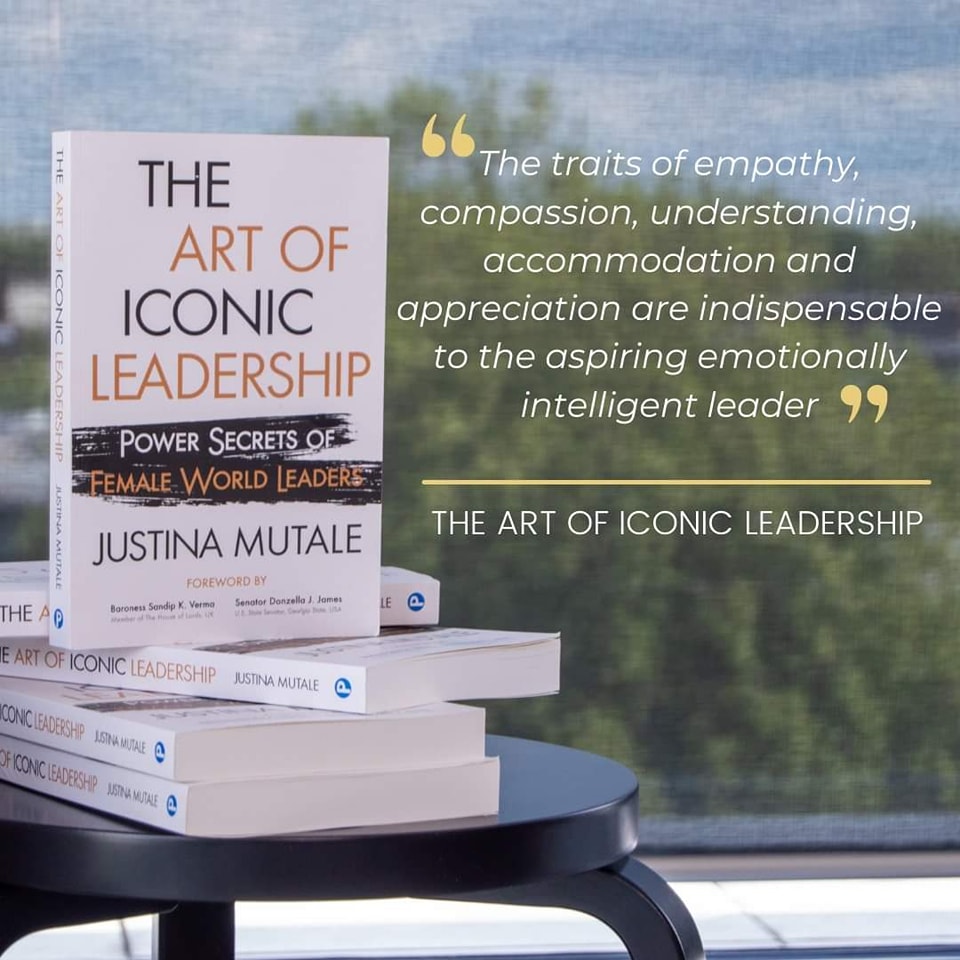
Named as one of Africa’s most respected names, well-known faces, and influential voices, Justina Mutale has is a Stateswoman who is changing the game, changing the rules and changing the future. She is one of the 21st century new leaders and influencers of our time, who are challenging what we have known for ages, challenging the stereotypes, challenging the norms and creating their own reality, which resonates with the needs of people around them. Justina Mutale is one of the 21st century leaders who lead by maximising resources around them to create powerful ripple effects that are changing lives around the world, using the power of their gifting, vision and creativity. She has been featured as a Hero in the Capital Finance International Journal, which brings coverage and analysis of the drivers behind change by combining the views of leading multilateral and national organizations with thought leadership from some of the world’s top minds. Justina Mutale has been globally recognised as a public personality who has the ability to use her status to potentially influence new thinking, to inspire the future, motivate the young generation, and make the world a better place.
"When you meet a person of conviction you are struck by their aura. Such was the case when I first met Justina Mutale in Dubai. Through subsequent conversations it became increasingly clear that Justina is destined to lead the cause of justice for Women and Girls.”
- Alex Goslar, International Branding Expert, Bangkok
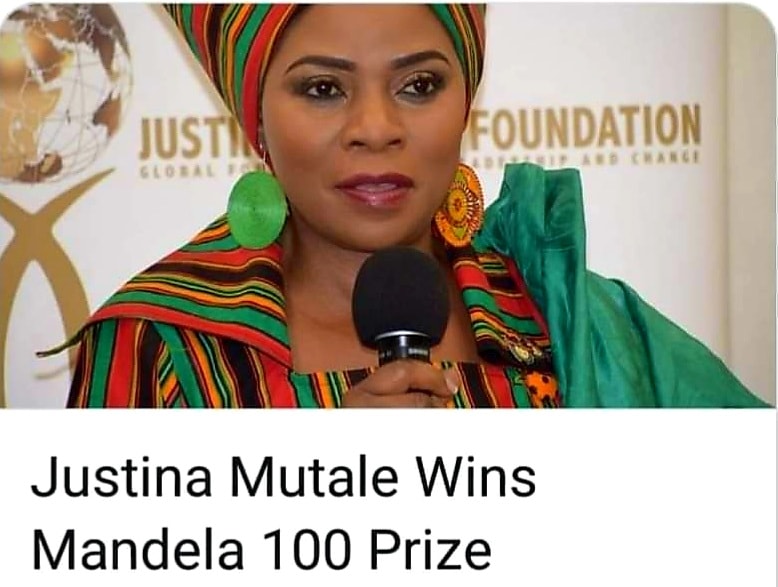
Justina Mutale currently boasts six Honorary Doctorates, in six different disciplines, from six different institutions, in six countries, from six continents across the globe and she is listed on numerous Halls of Fame, WHO’s WHO Lists, Influential Lists and Power Lists around the world. Justina Mutale has been globally acclaimed as one of the most influential and inspirational women of African origin. In 2012, she was awarded the prestigious title of ‘African Woman of the Year’ sharing a platform with various African Presidents and Heads of State. Justina Mutale is a Distinguished Member of the Global Order of Dignitaries and the Royal Biographical Institute, sharing these two prestigious platforms with Royalty, Heads of State; Rulers, High-Level Diplomats and Dignitaries from different parts of the world. Justina Mutale is named in the 100 Most Reputable Africans in the World; and is also listed in the Powerlist of the Most Influential Black People in the UK; and has been honoured as the Most Influential Black Person in Europe. Justina Mutale is featured in the Black 100+ Hall of Fame, an Exhibition and Legacy of the top 100 Black Achievers in modern Britain. And has been honoured for her outstanding and phenomenal leadership qualities as a Stateswoman; Global Woman Leader of the Year, and Iconic Woman Leader of the Decade. In recognition of her philanthropic work, Justina Mutale has also been honoured as a Global Official of Dignity; Africa Goodwill Ambassador; Ambassador for Peace; and Missionary of Peace. She serves as President, Patron, Ambassador, Trustee, Advisor, Board Director, Consultant and Mentor to several organisations in the UK and across the globe.
Her Excellency Dr. Justina Mutale is Founder & President of the Justina Mutale Foundation, and Founding Partner of WINTRADE Week, a signature global convention of women in trade, business and enterprise. In addition, Dr Mutale is the Founder of POSITIVE RUNWAY: The Global Catwalk to Stop the Spread of HIV/AIDS. Dr Mutale sits on the Advisory Board of the World Leaders Forum; and is Global Envoy & Spokesperson for Gender Equality at the International Women’s Think Tank. She is the co-author of “Women on Corporate Boards: An International Perspective”. Prior to founding her own organisation, Dr Mutale worked in the Commonwealth Secretariat’s Gender Section, which addresses gender equality, gender mainstreaming and the empowerment of women and girls around the Commonwealth.
Sovereign Magazine caught up with Justina Mutale for this exclusive interview:
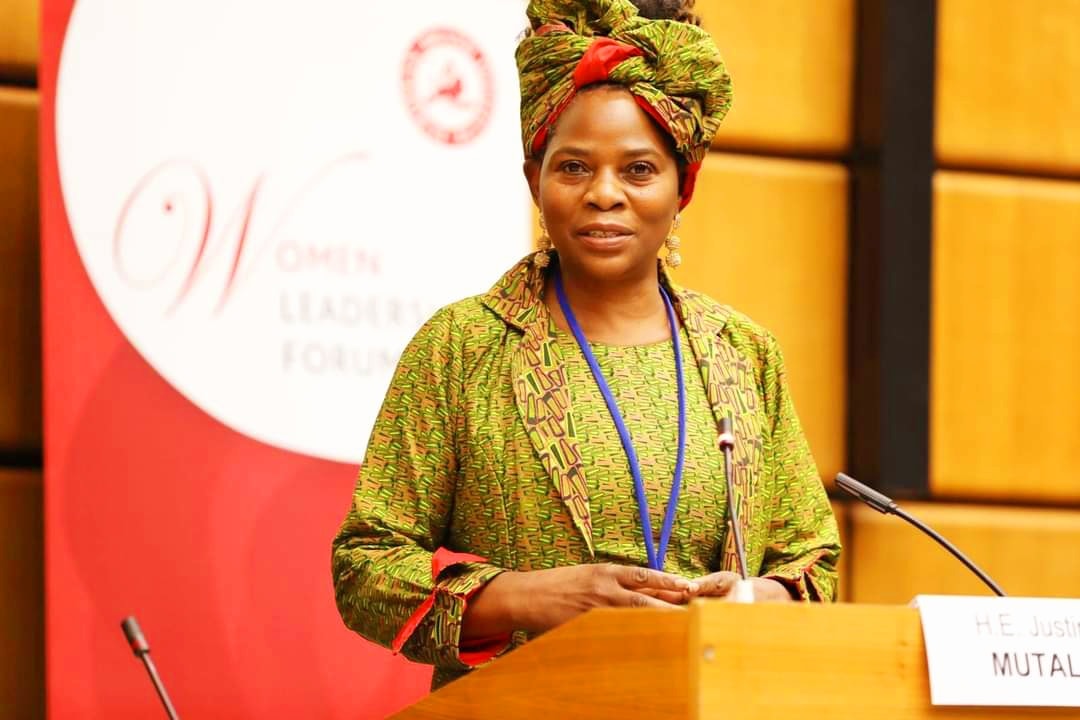
Forum, at the United Nations headquarters in Vienna, Austria.
What is your definition of leadership?
I strongly identify with and support the statement from US General, Norman Schwarzkopf when he said, “Leadership is a potent combination of character and strategy. But if you must be without one, be without strategy”. We live in a world where all too often leadership is focused on strategy, and where expediency and pragmatism are considered essential to getting the job done. You therefore, find that a lot people often make the mistake of thinking those with the highest educational degrees or the most admirable intellectual or academic qualifications can be good leaders. To the contrary, I believe leadership is something that has to come from the heart because leadership is about people. The ability to inspire others to give themselves unreservedly to the mission is not a management technique, but a leadership one - management is positional, while leadership is personal. I believe leadership is about putting humanity at the centre and acknowledging that you are working with humans and not machines or statistics. There was once a time when leadership meant flexing muscles and pulling one’s weight around and intimidating others. However, in the 21st century leadership is about getting along with people. To be an effective leader, one has to be prepared to positively impact other people’s lives. You have to have the ability to inspire your team to go beyond what is perceived to be possible. A leader has to win the hearts and minds of the team and their commitment to go the extra mile.
Tell us about your industry and what leadership represents in it.
I work in civil society. Through my organisation POSITIVE RUNWAY, which spans 6 continents across the globe, we aim to deliver the HIV/AIDS message in a discourse appropriate to the 21st young generation, in order to secure an AIDS free world and AIDS free generation. In working with a global community of young people, we have to deal with varying cultures, behaviours, attitudes, traditions and beliefs of a diverse group of people who work with us across the globe. Working in civil society demands that we strive to make a difference in a way that governments and business cannot. As civil society, we have an ethos that puts social and environmental issues above political or economic issues. As civil society, ours is to reach out to excluded communities to provide innovative solutions to new problems faced by society every day. The challenge for leaders in the civil society such as myself is not only to ensure that the daily work is completed and to a high standard, but to also win the commitment of our teams. This is because many of the talented and dedicated staff and volunteers who work with us do so for the noble cause of improving other people’s lives, rather than working for the money or personal advancement. As the primary voices of social, economic and environmental justice, and deliverers of innovative services to vulnerable people, it is important that we carry out our work armed with emotional intelligence and the spirit of Ubuntu, a traditional African philosophy that teaches us compassion. Therefore, to be effective as a leader of an organisation with charitable objectives, one needs to inspire and engage others to give their best, something that is not always easy in a world filled with complex business and geopolitical challenges.
What are the peculiar challenges for females in your industry and what advice would you give to help overcome them?
For decades women have been involved in civil society and international development efforts serving as participants, professional, volunteers, and activists. Yet within these efforts, women continue to be denied access to leadership positions. As indicated earlier, I believe every woman has the potential to lead. However, women often lack opportunities, skills and resources for realising their full potential. Some of the challenges hindering women include the lack of appropriate education, training, knowledge transfer and leadership development. In addition, leadership has been viewed through gender-biased lenses and you therefore, find that much of women’s leadership over the centuries has been invisible. A big challenge for us is to become aware that we need new lenses that will make us see things differently. Other challenges include the lack of mentors and support networks. I believe women need mentorship programmes and support networks to provide them with the much needed psychological and social support to enable them to effectively manage their leadership roles. Unlike their male counterparts, women often find themselves having to navigate societal and organizational landscapes. They also have to deal with ambivalent reactions that are deeply rooted in gender stereotypes. There is therefore, an urgent need to remove the barriers that confine women to places already defined for them in particular prescribed roles. As women of the 21st century, we need to have that unshakeable self-belief that it is politically correct to compete on equal footing with our male counterparts without feeling that we are overstepping our boundaries or undermining men’s masculinity.
Do you have goals? If yes, can you remember how early you started and what informed your goal setting?
I read somewhere that great leaders never make plans. While being proactive, great leaders respond to the needs of the moment. For example, I founded POSITIVE RUNWAY as an HIV/AIDS response campaign to bridge the gap in the global efforts to stop the spread of HIV/AIDS. In response to the persistent gender gap and the aspirations of the United Nations Agenda 2030’s Global Goals for Sustainable Development and Africa’s Agenda 2063, I launched the Justina Mutale Foundation to equip women with the necessary skills to achieve gender equality. I am a very spontaneous person and do not make deliberate strategic plans that run over a number of years. However, having said that, once I have embarked on a project or programme I set definite goals to guide that particular project or programme. Through my Foundation, we advocate for gender equality and women’s empowerment, including women’s political participation and the economic empowerment of women through trade, business and enterprise by providing leadership training and mentorship. We also advocate for the retention and completion of tertiary education for young women from rural and disadvantage families in Africa by providing them with university scholarships to access higher education at universities around the world. The Foundation forms part of the civil society delegations to the United Nations Commission on the Status of Women in New York; as well as to the African Union High Level Panel on Gender Equality held in the wing of the African Union Heads of State Summit; and the Commonwealth Women’s Forum held in the wings of the Commonwealth Heads of State Meetings. When I was very young, around the age of 10, I wanted to become a nun or priest. I wanted to serve God. I also wanted to serve and save humanity. I wanted to feed the hungry. I wanted to comfort the poor and I wanted to save sinners from burning in hell. And so, here I am, a humanitarian trying to save humanity from a hell on earth in the 21st century! Perhaps I could go back on my word and say that my goals where set then at the tender age of 10!
What is your biggest strength and how has this helped you to achieve your goals?
I am a born go-getter and a highly ambitious person with an insatiable drive to succeed. I therefore, work very hard to get things done. I also believe that if one wants to see one’s dreams come true, one must never go to sleep! For anyone to succeed one has to work hard and put in 110% in everything they do. Once I have a vision in my head I will do whatever it takes for that vision to become reality, despite all the obstacles that might stand in my way. I am also a very resilient person, a trait that is very important in this industry and which has been very beneficial to me in terms the area that I work in. My determination and focus for reaching and achieving my goals are some of the qualities that have driven me to be the person that I am today, and to accomplish what I have accomplished thus far. I also work in an industry for which I have great passion and because of that, everything I do in my work just come naturally to me. My work is almost my hobby, as I get immense pleasure from doing my work.
What does a typical working day involve for you?
With my kind of work, there is never a typical day to talk about as each day brings with it new opportunities, and new challenges as well as emergencies. I also travel a lot in my work and most times that means a new country, new city and new environment on any given day. However, whenever possible, most days start with meditation and prayer and a cup of warm water. I also always ensure I dress myself with a smile first thing in the morning. I believe a smile is the greatest accessory that one can ever have as it brings positive energy to the activities of the day. I normally wake up at 4.30 a.m. regardless of which part of the world I may be at any given time because my mind is at its sharpest early in the morning. I use this quite time of the night or early morning to go over what needs to be done that day. I also use it to respond to urgent emails and other correspondence, including social media. When I am at home I take long walks in the park with our puppy to refresh my mind at about 7.00 a.m. after working from 4.30 a.m. For the rest of the day, at times I have to attend meetings and others I have speaking engagements, conferences, interviews and also attend to the work on my desk, as well as home and family commitments.
How important are relationships to you? Do you remember a particular relationship that has had a great impact on you—positive or negative?
As an African, we believe in extended families and therefore, relationships are very important to me. The African philosophy of Ubuntu also teaches us that a ‘person is a person because of other persons – I am therefore you are’ and that we learn to be human by learning from other humans. The greatest relationship I have ever had, and which has had the greatest impact on me is the relationship with my parents and my brothers and sisters. One me the whole world in my family with its different characteristics and sibling rivalries. I therefore, learnt through growing up in a large family and with guidance from my parents that humility, tact, self-affirmation, faith, being meticulous, self and social awareness are some of the traits that enable one influence others. This taught me how to utilise emotional intelligence, self-awareness and social-awareness skills, which gives me the ability to recognise emotions in myself and in others and to be aware of and understand how others feel and to relate positively to other people. I grew up in an environment that emphasized empathy and selflessness. It also emphasized the Golden Rule, “to do unto others what you would want them to do unto you” by going beyond self-actualization and personal development to benefit others. Through my parents and my large family, I learnt the importance of preparedness, precision, ultimate discipline, initiative, focus, diligence, tact, perseverance, endurance and resilience. In those early years I learnt to aim at a target and to shoot the bull’s-eye, I also learnt how to lead a platoon into battle and to actually win the war. I now realise these are the same traits and qualities that are required to be an effective leader.
How do you reward yourself?
In between my travels and my work, I always ensure that I dedicate time to myself. I spend a lot of time with myself whenever I can. This provides me the opportunity to reflect on my work, my personal life and my family, on what needs to be done and can be done better. Sometimes I just rest my mind completely. I love taking holidays and going to exotic places where I can be at one with nature. I also take spiritual pilgrimages. As a student of practical philosophy, I normally reward myself with a new book on philosophy and leadership whenever I travel. I also love books or biographies on some of the greatest leaders that the world has had the privilege to have so far. Of course, I love shopping, I love good food, I love good company. I go out a lot and I love dancing, shopping and love beautiful elegant clothes. I also spend a lot of time with my children and take them with me on holidays whenever possible.
By Sovereign Magazine : https://www.sovereignmagazine.co.uk



